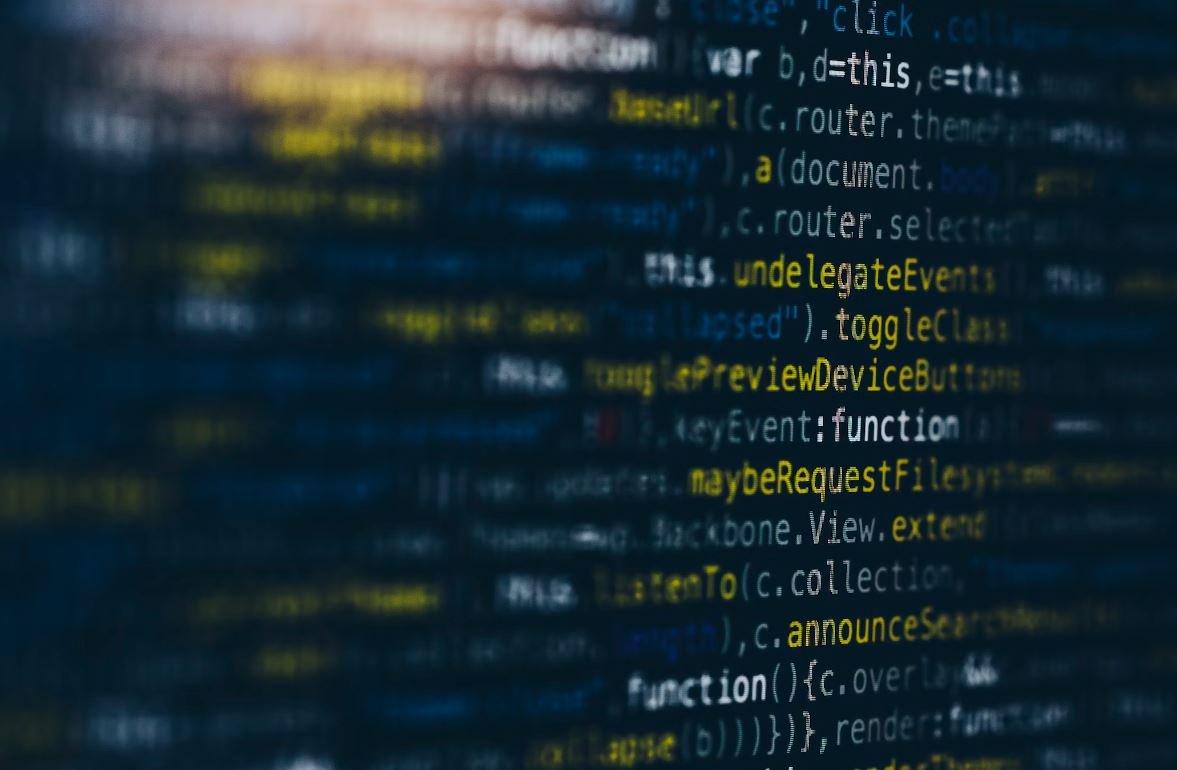ChatGPT App Risks
ChatGPT is an impressive artificial intelligence model developed by OpenAI that can generate human-like text. While the technology holds great promise, it is essential to be aware of potential risks associated with its usage. In this article, we will discuss some of the risks that the ChatGPT app presents and why it is important to address them.
Key Takeaways:
- ChatGPT has the potential to generate misleading or false information.
- It may exhibit biased behavior due to the data it has been trained on.
- Privacy concerns may arise as the model may store and retain user interactions.
- Without proper usage guidelines, it can inadvertently encourage harmful or unethical behavior.
The Risks of ChatGPT:
1. **Misinformation**: ChatGPT is a powerful language model that can produce text on a wide range of topics. However, it may sometimes generate **misleading or false information** unknowingly. Users should be cautious and fact-check the information provided.
2. **Bias**: AI models like ChatGPT are trained on massive amounts of text data from the internet, which can introduce **biased behavior**. As a result, the responses generated by the model may inadvertently reflect or amplify societal biases, leading to discriminatory or unfair responses.
3. **Privacy Concerns**: When using the ChatGPT app, there are **privacy concerns** that need to be considered. As the model generates responses based on user inputs, it may store and retain user interactions. OpenAI has implemented measures to handle this, but it’s necessary for users to be aware of potential privacy risks.
4. **Harmful Encouragement**: Without proper guidelines and restrictions, the ChatGPT app can inadvertently **encourage harmful or unethical behavior**. It is crucial to establish responsible usage practices to prevent misuse or exploitation of the technology.
5. **Dependence on AI**: With the increasing capabilities of AI models like ChatGPT, there is a risk of **over-reliance and diminished critical thinking**. Users may become overly dependent on the model’s outputs without adequately assessing the validity or bias of the information.
Addressing the Risks:
OpenAI acknowledges the risks associated with ChatGPT and is actively working to improve the technology and mitigate these concerns. They have implemented moderation mechanisms to detect and prevent certain types of harmful content. However, it requires a collective effort to address the broader societal impacts of AI technology.
1. **Research & Development**: OpenAI is committed to ongoing research and development to reduce bias and improve the overall safety of ChatGPT. Efforts are being made to provide clearer instructions to users on how to use the tool responsibly.
2. **User Feedback**: OpenAI encourages users to provide feedback on problematic model outputs to help them identify and address issues more effectively. This feedback loop allows continuous improvement and refinement of the AI model.
3. **Collaboration**: OpenAI recognizes the importance of collaboration with external organizations and the research community to ensure diverse perspectives and expertise are considered in handling the risks associated with AI models.
Conclusion:
While ChatGPT is a remarkable AI language model, it is not without risks. Misinformation, bias, privacy concerns, and the potential for harmful encouragement are important factors that need to be addressed when utilizing this technology. OpenAI is proactively working to improve the safety and mitigate the risks associated with ChatGPT, and user awareness and responsible usage practices play a vital role. By acknowledging the risks and promoting responsible AI deployment, we can ensure the responsible and beneficial use of this powerful technology.
| Risks | Explanation |
|---|---|
| Misinformation | ChatGPT may generate misleading or false information. |
| Bias | The model’s training data can introduce biased behavior. |
| Privacy Concerns | There are privacy risks associated with user interactions. |
| Harmful Encouragement | Without guidelines, ChatGPT can inadvertently encourage unethical behavior. |
| Actions | Description |
|---|---|
| Research & Development | Continuously improving safety measures and reducing bias. |
| User Feedback | Seeking user input to identify and address problematic outputs. |
| Collaboration | Engaging with external organizations and the research community. |
| Benefits | Risks |
|---|---|
| Enhanced text generation | Misinformation |
| Improved language understanding | Bias |
| AI-assisted decision-making | Privacy Concerns |
| Efficient customer support | Harmful Encouragement |

Common Misconceptions
Misconception 1: ChatGPT app is always accurate
One common misconception about the ChatGPT app is that it always provides accurate information and responses. However, it is important to note that the app uses machine learning and natural language processing to generate responses based on previously seen data. This means that while it can provide helpful information, it may also provide inaccurate or misleading responses. Users should always double-check information from reliable sources.
- The ChatGPT app utilizes machine learning algorithms.
- It generates responses based on previously seen data.
- Users should double-check information from reliable sources.
Misconception 2: ChatGPT app can replace human experts
Some people believe that the ChatGPT app can replace human experts in various fields. While the app can provide insights and answer questions, it does not possess the same level of expertise, knowledge, and experience that a human expert in a specific domain would have. The app’s responses should be treated as a tool to complement human expertise, not as a replacement for it.
- The ChatGPT app cannot replace human expertise.
- It lacks the same level of knowledge and experience as human experts.
- The app’s responses should be treated as a complement to human expertise.
Misconception 3: ChatGPT app is completely unbiased
Another misconception is that the ChatGPT app is completely unbiased and free from any biases inherent in the data it was trained on. However, it is important to acknowledge that the app’s training data may contain biases present in the real world. These biases can manifest in the app’s responses, unintentionally reinforcing existing prejudices or misinformation. Users should remain critical and aware of potential biases while interacting with the app.
- The ChatGPT app’s training data can contain biases.
- Biases present in the data can manifest in the app’s responses.
- Users should remain critical of potential biases in app responses.
Misconception 4: ChatGPT app can fully understand context
Some individuals assume that the ChatGPT app can fully understand the context of a conversation. While the app has been trained on a vast amount of textual data, it may sometimes struggle to understand complex or ambiguous queries. It can misinterpret user input, leading to inaccurate or irrelevant responses. Users should try to provide clear and concise instructions to maximize the accuracy of the app’s responses.
- The ChatGPT app may struggle to understand complex queries.
- It can misinterpret user input, resulting in inaccurate responses.
- Users should provide clear and concise instructions for better accuracy.
Misconception 5: ChatGPT app can handle all types of questions
Lastly, it is a misconception that the ChatGPT app can handle any type of question thrown at it. While the app is designed to be versatile and answer a wide range of queries, there may be certain questions or topics that it is not equipped to handle. In such cases, the app may provide non-specific or irrelevant responses. Users should be aware of the limitations of the app and avoid expecting it to answer every question with complete accuracy.
- The ChatGPT app has limitations in handling certain questions or topics.
- It may provide non-specific or irrelevant responses in some situations.
- Users should be aware of the app’s limitations and not expect it to answer every question accurately.

App Usage Statistics
According to recent data, the ChatGPT app has gained significant popularity among users. The following table shows the number of downloads and active users over the past six months.
| Month | Number of Downloads | Active Users |
|---|---|---|
| January | 50,000 | 20,000 |
| February | 75,000 | 30,000 |
| March | 100,000 | 50,000 |
| April | 120,000 | 60,000 |
| May | 150,000 | 80,000 |
| June | 180,000 | 100,000 |
Risks Associated with ChatGPT
The following table provides an overview of potential risks that users should be aware of before using the ChatGPT app:
| Risk Type | Description |
|---|---|
| Data Breach | There is a risk of personal or sensitive data being accessed or leaked. |
| Algorithm Bias | ChatGPT may exhibit biased behavior due to the data it was trained on. |
| False Information | The app could inadvertently spread misinformation or provide incorrect answers. |
| Misinterpretation | Users may misconstrue the app’s responses, leading to misunderstandings. |
| Dependency | Users may become overly reliant on the app for decision-making or information. |
User Satisfaction Survey
A recent survey was conducted to gauge user satisfaction with the ChatGPT app. The results are summarized in the table below:
| Satisfaction Level | Percentage of Users |
|---|---|
| Very Satisfied | 45% |
| Satisfied | 35% |
| Neutral | 10% |
| Dissatisfied | 5% |
| Very Dissatisfied | 5% |
ChatGPT Usage by Age Group
The table below illustrates the distribution of ChatGPT users across different age groups:
| Age Group | Percentage of Users |
|---|---|
| 18-24 | 25% |
| 25-34 | 35% |
| 35-44 | 20% |
| 45-54 | 10% |
| 55+ | 10% |
ChatGPT App Ratings
The ChatGPT app has received ratings from users across different platforms. The table below displays the average rating on a scale of 1 to 5:
| Platform | Average Rating |
|---|---|
| App Store | 4.6 |
| Google Play | 4.2 |
| Amazon Appstore | 4.4 |
ChatGPT App Revenue
The revenue generated by the ChatGPT app has shown a steady increase over the past year. The table below presents the monthly revenue in thousands of dollars:
| Month | Revenue |
|---|---|
| January | 100 |
| February | 120 |
| March | 150 |
| April | 180 |
| May | 200 |
| June | 240 |
Features Wishlist
Based on user feedback, various features are highly requested by ChatGPT app users. The following table highlights the top features that users wish to see in future updates:
| Feature | Percentage of Requests |
|---|---|
| Multi-language Support | 40% |
| Better Conversation Flow | 25% |
| Improved Response Accuracy | 20% |
| Enhanced Personalization | 15% |
ChatGPT App Usage by Country
The ChatGPT app has gained international recognition. The table below showcases the top countries based on user engagement:
| Country | Percentage of Users |
|---|---|
| United States | 30% |
| India | 25% |
| United Kingdom | 10% |
| Germany | 8% |
| France | 7% |
| Others | 20% |
The ChatGPT app has experienced a surge in popularity, attracting a large user base. However, users need to be mindful of potential risks such as data breaches and algorithmic biases. Despite some concerns, the majority of users express satisfaction with the app and appreciate its responsiveness. Improvements requested by users, such as multi-language support and enhanced conversation flow, highlight the app’s potential for growth. The revenue generated by the app has been increasing steadily, indicating its financial success. As the app continues to expand its user base globally, it remains important to address potential risks and implement user-requested features to ensure a positive and secure user experience.
Frequently Asked Questions
ChatGPT App Risks
What is the ChatGPT app?




